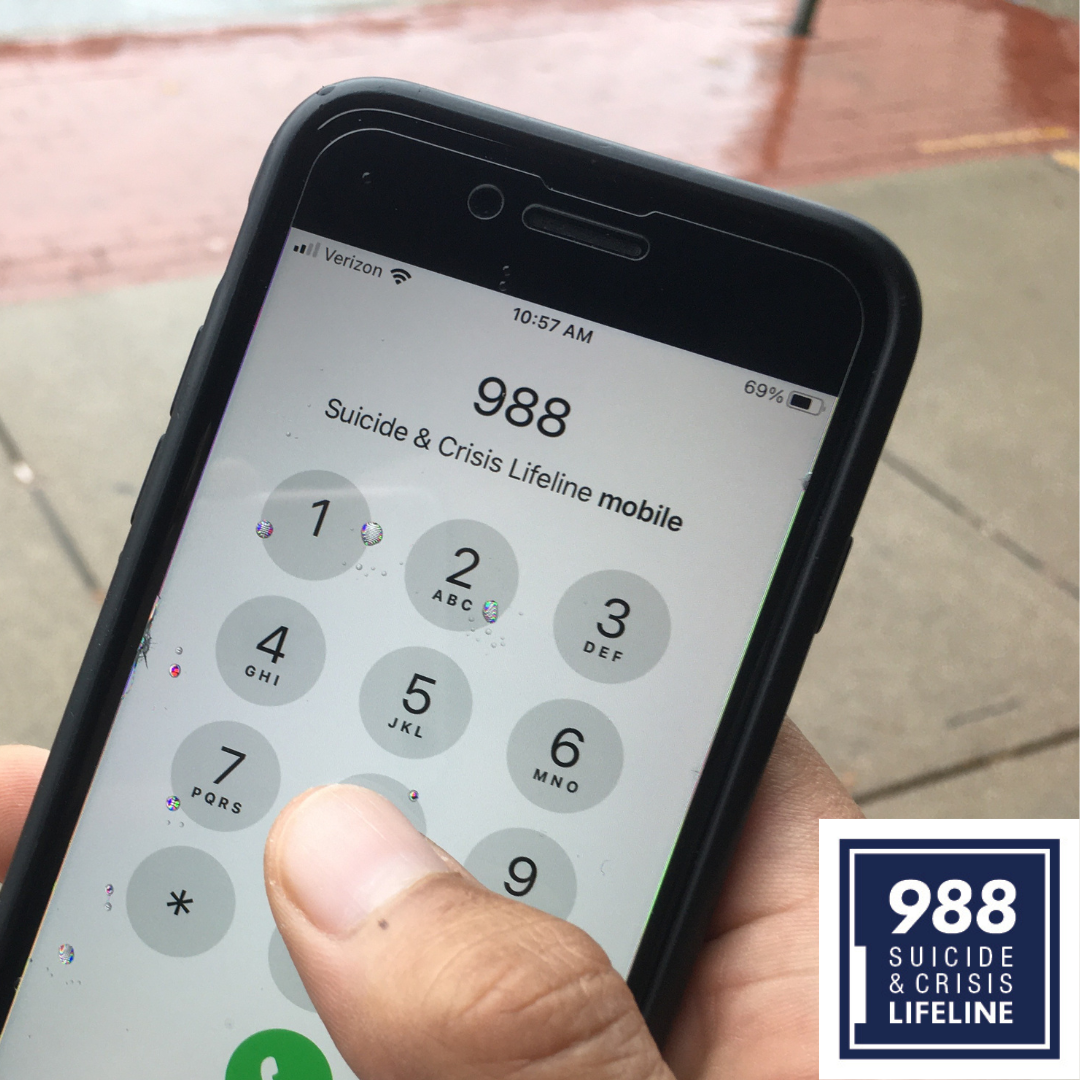
If you or someone you know needs help, contact our 24/7 crisis team through chat, phone, or text, or call 988.
We have been answering the call for help since 1995 for anyone struggling with mental health, substance abuse, exposure to violence, or a traumatic life experience.
FrontLine’s 24/7 Crisis Services for Cuyahoga County include*:
Care Response (*available in zip codes 44102 and 44105)
Care Response is a pilot program that is supported through funding from Cuyahoga County’s Alcohol Drug Addiction & Mental Health Services Board (currently available in zip codes 44102 and 44105) and implemented by FrontLine Service.
The Care Response Team is a non-police response for individuals having a mental health crisis in the community.
When you call 988, a mental health expert and a person with lived experience will be dispatched to assist the person experiencing the crisis, in the community.
Care Response can provide crisis Intervention, counseling, and referrals and connection to support services.
You can learn more about the Care Response Team here
Hope-Link
A Mobile Crisis Team program for individuals recently discharged from a hospital/mental health service after a suicide-related event.
Crisis staff provide emotional support and linkage to ongoing follow-up care.
Jail Diversion
The Diversion call center staff assist law enforcement to determine the appropriate care for adults experiencing a mental health crisis.
Mobile Crisis Team/Child Response Team
The Crisis Team provides information & referrals, the suicide prevention hotline, in-person assessments, crisis services, and wellness checks.
We will travel to homes, schools, hospitals, jails, or wherever a person in crisis needs help.
Police Co-Response
Mental health professionals accompany the Cleveland Division of Police officers dispatched to assist adults who appear to be experiencing mental health or substance use issues.
Stricklin Crisis Stabilization Unit
An alternative to hospitalization, providing short-term, intensive behavioral health services, and support for adults who do not require inpatient care.
*No medical insurance, mental health provider, or transportation needed.
Resources for Suicide Prevention
Knowing the signs that someone may need help
Loss of interest in things they care about.
Obsession with death & suicide.
Making arrangements; setting one’s affairs in order.
Loss of hope, feeling like there’s no way out.
Reckless behavior and increased alcohol or drug use.
Uncontrolled anger & difficulty sleeping.
Symptoms of depression
Persistent sad or “empty” mood.
Feeling hopeless, helpless, worthless, pessimistic, and/or guilty.
Fatigue or loss of interest in ordinary activities, including sex.
Disturbances in eating and sleeping patterns.
Irritability, increased crying, anxiety, or panic attacks.
Difficulty concentrating, remembering, or making decisions.
Thoughts of suicide; suicide plans of attempts.
Persistent physical symptoms or pain that do not respond to treatment.
Learn More
Learn about the 988 Suicide and Lifeline
Download one of our crisis services brochures to learn more.
Types of Calls to Mobile Crisis
Ways you can help someone considering suicide:
Read our FrontLine Program Spotlights and News stories on our services to resolve crises
Learn More about the Stricklin Crisis Stabilization Unit
The CSU is a 15-bed intensive, short-term behavioral health treatment alternative to the emergency room or inpatient hospitalization.
The 988 National Suicide & Crisis Lifeline is live! Learn more about how FrontLine Service now answers calls for 988 in Cuyahoga County.

















